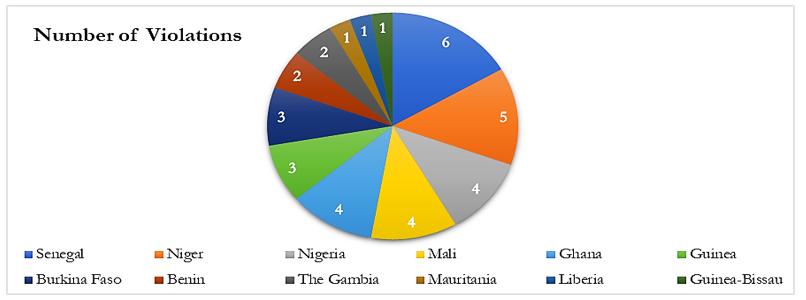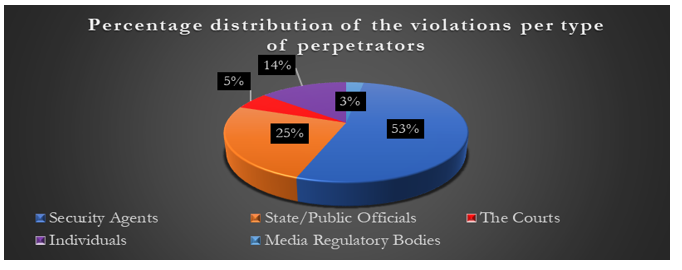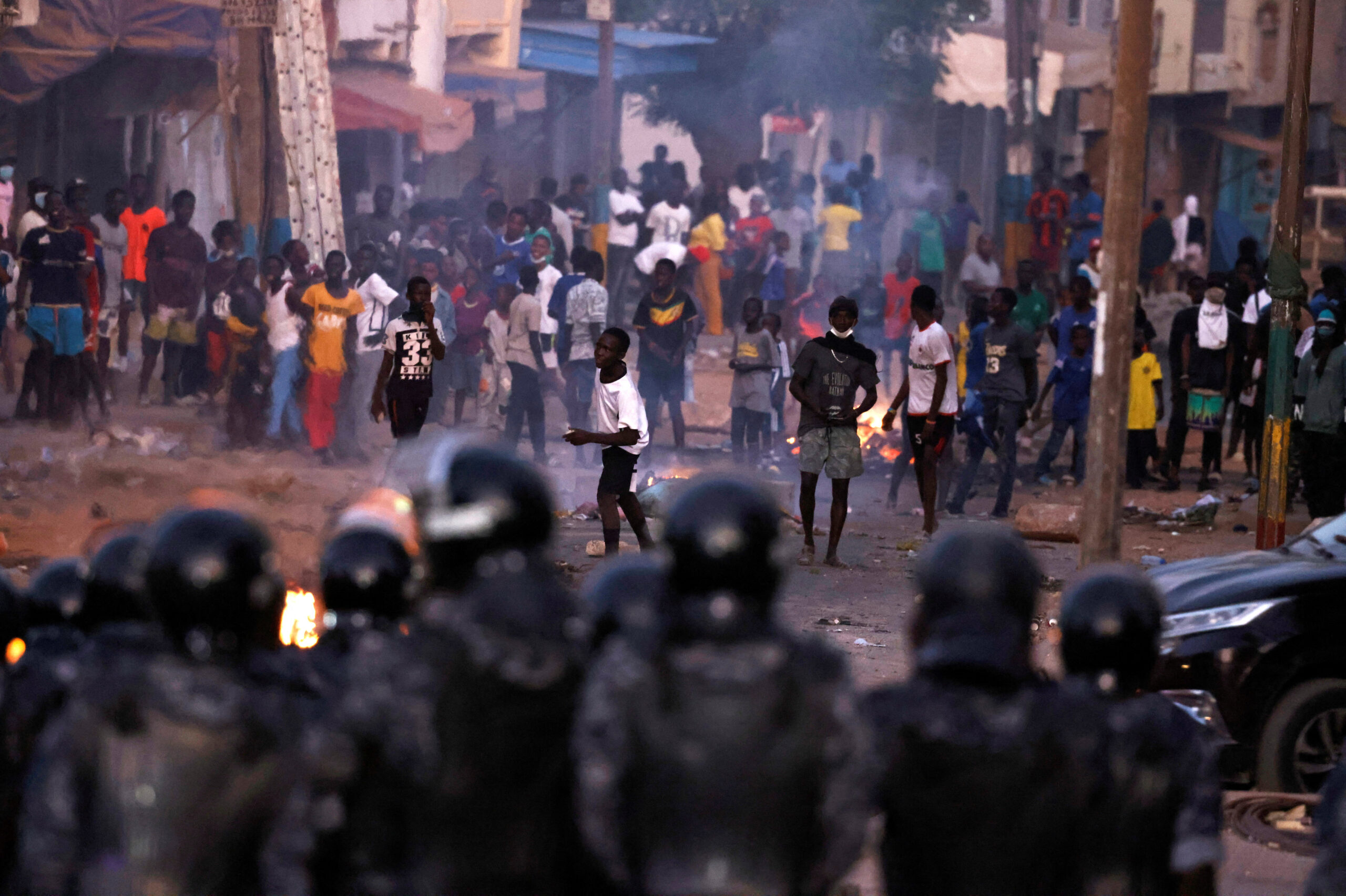A total of thirty-six (36) incidents of freedom of expression violations were recorded this quarter (July-September 2023), with Senegal and Niger at the forefront of the repression. The figure is two per cent (2%) higher than that of the preceding quarter (April-June 2023) which stood at 35.
Senegal recorded six (6) violations and Niger five (5) violations, while Nigeria, Ghana and Mali each recorded four (4) violations each. Guinea and Burkina Faso each recorded three (3) violations. Benin and The Gambia each recorded two (2) violations, with Mauritania, Liberia and Guinea-Bissau each recorded one (1) violation.

Figure 1: Number of violations and countries
The quarter was marred by a wave of arrests and detentions, shutdown of media and physical attacks in Senegal. The crackdown on opposition figures and journalists included detention, for the third time in a year, of Pape Alé Niang, managing editor of the Dakar Matin online news portal and temporary blackout of social media platforms, amidst concerns about the erosion of freedom of expression in Senegal.
Threats against journalists and the suspension of France 24 and RFI point to a broader effort by the military government to control the narrative in Niger. The arrest of journalist Samira Sabou raises further concerns about the safety of media professionals in the country.
Like Niger, junta-controlled Burkina Faso has witnessed a concerning regression in press freedom, marked by the shutdown of Radio Oméga, the suspension of Jeune Afrique and threats against prominent journalist Inoussa Ouédraogo.
Critical media in Guinea are also being targeted by the junta with prominent media outlets like Guineematin.com and Inquisiteur.net inaccessible for months. A ban on processions is still in force, and is brutally enforced, further restricting the civic space.
In terms of the distribution, eighteen (18) of the violations were targeted at journalists and media workers, while five (8) were targeted at media organisations. Six (6) of the violations were directed at citizens and four (4) at activists.

Figure 2 below shows the percentage distribution of violations per type of perpetrator.
This quarter’s freedom of expression monitor also features other important freedom of expression and digital rights developments in the region, including redresses for violations and recommendations to key stakeholders.
Access the full report here.






